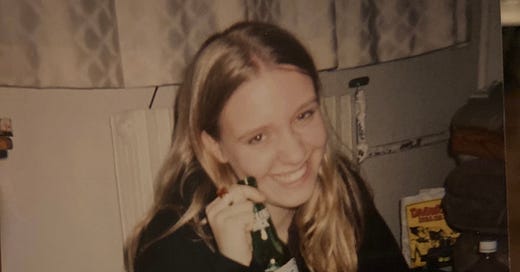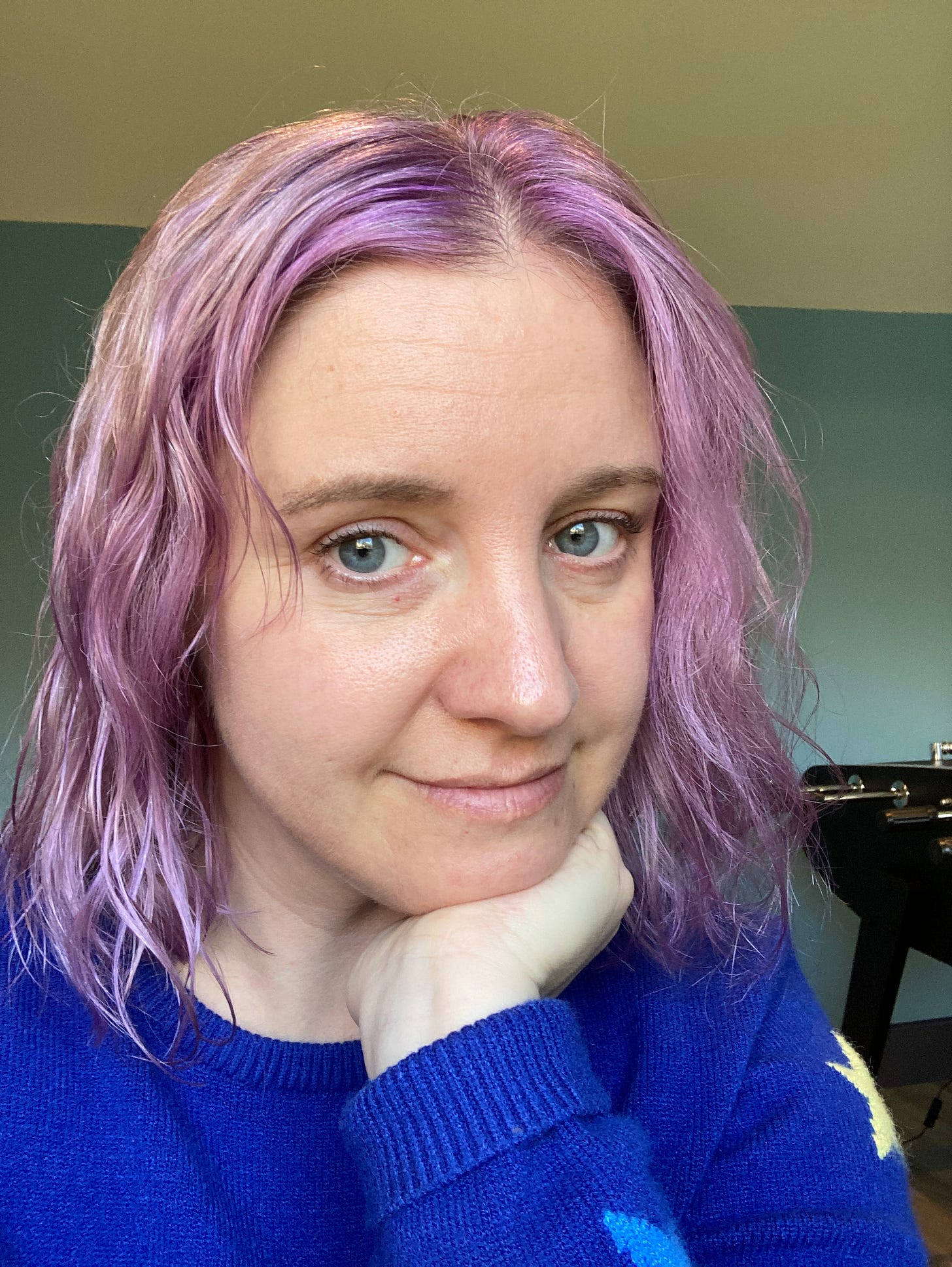All my life, I’ve felt different to most other girls and women.
At school, I never perfectly fitted into one specific group. Though I was relatively popular and hung out with the ‘cool crowd’ most of the time, I was always on the fringes of that group. They were all either very sporty and/or super smart, taking every advanced class and playing at least two team sports. I was smart, but my ineptitude at maths meant I was never top of the class, and the only sport I played was tennis for a couple of years. They were into country music or rap, while I was listening to Tori Amos and Ani DiFranco. They liked going to the mall to shop for clothes and curling irons, while I preferred thrift stores and couldn’t style my hair to save my life.
It wasn’t that I was left out, because I wasn’t. I went to the parties, did all the things, and was never short of friends, but something still didn’t feel quite right. I always felt a certain level of remove from them, that I was in their galaxy but not on the same planet. When I got to university and found ‘my people’, it was like coming home. Finally, I had friends that not only made me laugh and were there for me, as my school friends had, but who also shared my interests, taste in music, and penchant for philosophical conversations at 3am. Yes, we were probably a bit navel-gazey and pretentious, but that was exactly what I needed and craved at that time of my life. To know that there was more out there than what my hometown could offer.
Then I moved to London when I was 20 and had to start over again. I was hanging around all these very grown-up and metropolitan people, in one of the biggest and most culturally diverse cities in the world. Suddenly, my thrift store Atari t-shirt and baggy jeans didn’t seem quite up to scratch. And so began a long, uncomfortable period where I never felt quite sure what to wear, how to behave, or what I should be doing with my hands (besides holding a cigarette).
The largely female obsession with fashion and beauty routines bored and repulsed me in equal measures. I could think of nothing worse than going shopping every weekend, wearing heels and a short dress to a club, or spending two hours getting ready to go out. I had female friends, of course, but was definitely more of a ‘guy’s girl’. While not exactly a tomboy, I felt more at ease around men. And it wasn’t because I found them unproblematic, or because I looked down on my female friends for being more into stereotypically girly stuff than me, but I guess there was something appealingly straightforward about them. What you saw was what you got, for the most part.
While the girls were in a back bedroom trading outfits and doing each other’s hair, I’d be sitting in the living room with the guys, drinking beer. Their bedroom world scared me because I didn’t know how to exist in it. I’d sit on the edge of the bed, looking at the round brushes, makeup palettes, and eyelash curlers strewn around me, and feel something between bewilderment and panic. If I stayed long enough, they’d find out that I had no idea what to do with those foreign implements, that I didn’t know how to ‘perform’ femininity. I still don’t, for the most part.
When conversations around gender identity exploded into the public consciousness a few years ago, I felt a strange mixture of relief and discomfort. Acknowledging that not everyone wants or is able to perform the expected gender expression of their sex has helped so many people, myself included, feel less alone in many ways. But equally, so much emphasis on what is ‘feminine’ and what is ‘masculine’ seems to have opened up a different kind of rigidity that I’m not entirely comfortable with either. Like you have to have yourself all figured out and neatly labelled for others’ convenience. That you really should ‘pick a side’, even if that side is non-binary. I don’t mean to sound dismissive of how important these distinctions are for some, just to explore my own feelings on the matter as someone who doesn’t strongly identify with any of the labels or identities on offer. I suppose I’ve just always felt uniquely me, and I’m okay with not defining exactly what that means or what word would best describe it.
As these conversations have been occurring and as I’ve been doing deep inner work on myself in the last few years, I’ve questioned whether my aversion to ‘girly’ things is actually less to do with my relationship to femininity and more about internalised misogyny. Have I been conditioned, especially as a woman who came of age in the ‘ladette’ culture of the late 90s and early 2000s, to look down on these things? It’s possible that it plays a part, certainly. The messages we receive from birth that the interests and behaviours of girls and women are silly, mundane, or unimportant run deep, even when we actively work to reject gender stereotypes. We are all subject to unconscious bias, even when it’s against ourselves or people we love and admire.
More than anything though, I think my discomfort with the getting-ready-in-the-bedroom scenario was about having to work so tirelessly at hiding my awkwardness and that nagging feeling that I didn’t quite belong. If it wasn’t my lack of girliness, it was my American accent, or the fact that I was at least five years younger than many of my friends, or because I was a broke writer in a sea of urban professionals. Looking back, I believe that a major contributor to my feelings of ‘otherness’ was what I now know is my neurodivergent brain - yet another thing I feel no great desire to label. Indeed, being non-neurotypical probably explains a fair bit of all of the above, as well as why I always felt compelled to drink as much alcohol as possible before interacting with humans, but that’s a different post for a different day.
And though knowing why I might have felt different to other girls in the past has helped me to make sense of myself and feel more at home in my skin, it hasn’t changed the fact that I still look around sometimes at other women my age and feel a bit odd for not having a skincare routine, for still hating shopping, and still not knowing what to do with my hair. Even after a lifetime spent helping women, writing about women, caring for women, and being around women, that I still don’t feel like a ‘proper’ woman is a strange thing indeed. Trying to make new friends in your 40s is difficult enough as it is, without the added awkwardness of being a neurodivergent sober person with chronic health conditions, especially in booze-obsessed Britain. Let’s just say it’s a good thing I’m quite content with my own company.
This might all sound rather insane or unusual to those who can’t identify, but I’d love to hear from those of you who do. Tell me in the comments if any of this is familiar to you or you’ve experienced similar feelings of ‘otherness’. At least then we will know we are not alone and are, in fact, like other girls.





